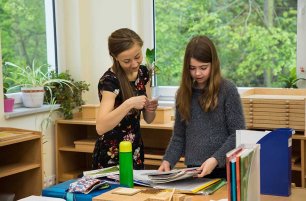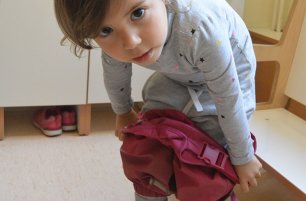Mones
Sorry, this article is only in Czech.

Maria Montessori often stated that not only does every human being have an innate drive to understand the environment around them, we all also naturally have what she called a “Mathematical Mind”. In the Montessori classroom, mathematical learning begins through indirect preparation long before a child is ever introduced to any Math materials.
Read more
Have you ever noticed that your child enjoys singing the same song over and over again, or wants you to repeat the same story for what feels like a million times? Dr. Montessori highlighted the importance of sensitive periods in children, which are known as windows of opportunities for children to develop skills, including movement, language and most definitely, order. A child’s need for external order is present as early as childbirth and peaks in their second year, before fading at about the age of 5. This period of development helps a child to develop a connection between themselves and the world, process information and overcome challenges.
Read more
The fundamental aim of Montessori education is to help children become fully-fledged citizens of the world. How do we achieve something so monumental?
Read more
Introducing IMSP’s LIDOVÉ NOVINY, a Czech-language newspaper written, edited, and assembled by our Upper Elementary students. This project was inspired by renowned Czech writer Karel Čapek. Čapek, best known for inventing the word „robot“, was beloved for his versatile and multi-genre pieces. Bouncing between modern fairytales, short stories, travel-logs, and biographical work, Čapek also had a particular affinity for the feuilleton, a short newspaper essay designed, not only to inform the reader, but to amuse them as well.
Read more
Patience and a positive attitude are key when helping children with dressing and undressing. This means staying engaged with your child, maintaining eye contact, but also being patient as they process the information and movements.
Read more